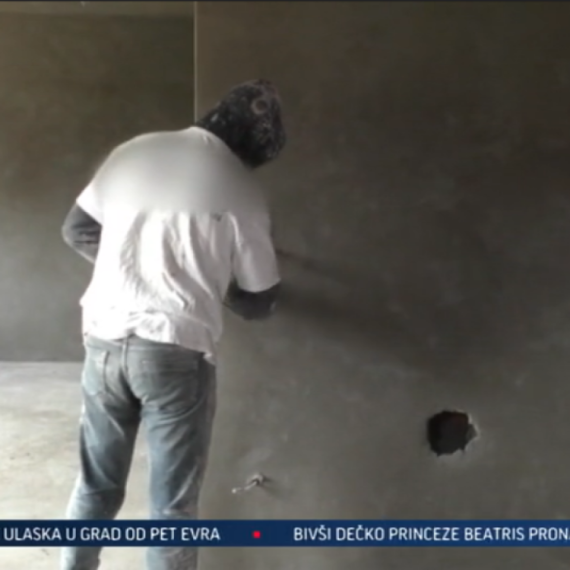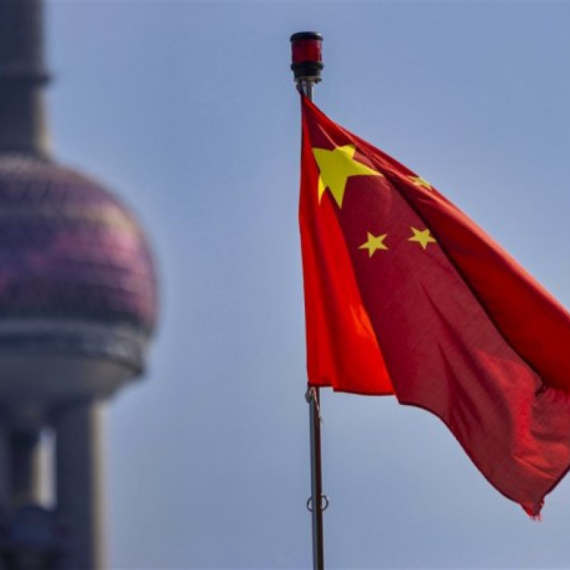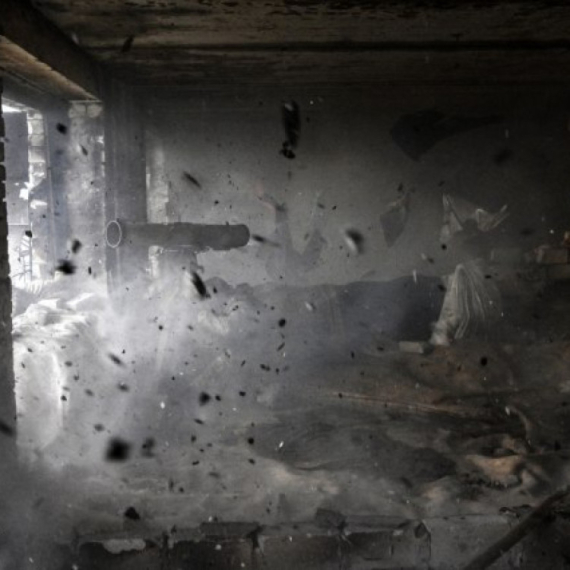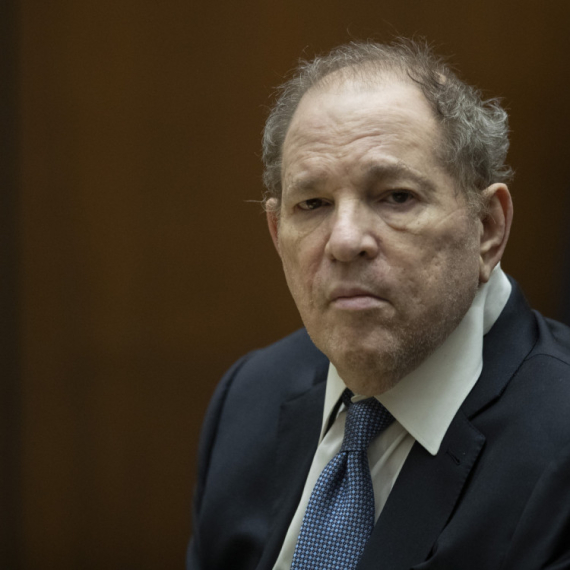"Stability maintained in southern Serbia"
Interior Minister Ivica Dačić says stability, public order and security of citizens and their property has been maintained in Bujanovac, Medveđa and Preševo.
Tuesday, 29.03.2011.
10:38

Interior Minister Ivica Dacic says stability, public order and security of citizens and their property has been maintained in Bujanovac, Medvedja and Presevo. The three southern municipalities are home to the largest ethnic Albanian population in Serbia outside of Kosovo. "Stability maintained in southern Serbia" Addressing the media after a meeting of the Presidency of the Serbian government's Coordinating Body for the three municipalities, Dacic pointed out there are still security risks such as organized crime and spread of terrorist activity from Kosovo, but noted that inter-ethnic incidents fell 26 percent last years. "It is in our interest to determine joint goals, to establish peace and a high level of security for all citizens in this area, and to have as much national community representation in state administration as possible," Dacic stressed. He said the police has the most ethnic Albanian members compared to other state bodies, adding that out of the 154 police officers in Presevo 115 are ethnic Albanians, while in Bujanovac the number is 101 out of 198, and 50 new members will be selected soon. "We see this as a positive thing, a way for the police to become closer to the local community," said the minister of police. He added that Serbian police (MUP) Gendarmerie and other special units will carry out only those tasks which cannot be handled by members of the multi-ethnic police. The meeting of the Presidency of the Serbian government's Coordinating Body for Bujanovac, Medvedja and Presevo marked two years since the signing of the agreement on the principles of reconstruction of this body. The meeting was attended by U.S. Ambassador to Serbia Mary Warlick and representatives of several international organizations and embassies. Ivica Dacic addresses reporters (Tanjug) "Situation improved" Head of the Mission to Serbia of the Organization for Security and Cooperation in Europe (OSCE) Dimitrios Kypreos said Monday the situation in southern Serbia has improved and that Bujanovac, a town and municipality in that region, now has a multi-ethnic government. According to Kypreos, an economics college should be opened in that town. He believes it could be done in October. Kypreos noted that some ethnic Albanians are already part of the administration in Presevo, Bujanovac and Medvedja, three municipalities in southern Serbia where they form a significant part of the population. The goal is to continue that process and have even more of them work for the local government, he stressed. He commended Riza Halimi, an ethnic Albanian who is also a member of the Serbian parliament, and mayors of the three municipalities on their efforts, adding that the achieved results would have been impossible without them. The aim is to make all the citizens feel like Serbia is their country, Kypreos remarked. The OSCE official attended a meeting of the Presidency of the Serbian Government Coordination Body for Bujanovac, Medvedja and Presevo, which marked two years since the signing of the agreement on the reconstruction of this body. More effort needed MP from the Party for Democratic Action Riza Halimi expressed hope Monday that the Serbian government Coordinating Body for Presevo, Bujanovac and Medvedja will endeavor harder to speed up the solving of problems in that area, primarily in the fields of economy and education Halimi told reporters after a session of the Presidency of the Coordinating Body that the problems include non-recognition in Serbia of diplomas obtained at universities of Pristina, Tirana and Tetovo, in Macedonia. Young people should not be left in the lurch for political motives, he said. President of the Coordinating Body Milan Markovic previously told reporters that Serbia cannot recognize degrees from University of Pristina, as they carry the seal of the so-called Republic of Kosovo. Markovic said that Serbia will not recognize Kosovo as an independent state, either explicitly or implicitly, and that it will therefore not recognize any university degrees issued in Pristina. He said that the issue of recognition of diplomas from Pristina is also a question for local authorities, because Serbia has offered the placing of UNMIK seal on the diplomas, but the other side did not accept. There are additional problems, such as school books in Albanian language, Halimi said, noting that there have been some positive developments in the three municipalities.
"Stability maintained in southern Serbia"
Addressing the media after a meeting of the Presidency of the Serbian government's Coordinating Body for the three municipalities, Dačić pointed out there are still security risks such as organized crime and spread of terrorist activity from Kosovo, but noted that inter-ethnic incidents fell 26 percent last years."It is in our interest to determine joint goals, to establish peace and a high level of security for all citizens in this area, and to have as much national community representation in state administration as possible," Dačić stressed.
He said the police has the most ethnic Albanian members compared to other state bodies, adding that out of the 154 police officers in Preševo 115 are ethnic Albanians, while in Bujanovac the number is 101 out of 198, and 50 new members will be selected soon.
"We see this as a positive thing, a way for the police to become closer to the local community," said the minister of police.
He added that Serbian police (MUP) Gendarmerie and other special units will carry out only those tasks which cannot be handled by members of the multi-ethnic police.
The meeting of the Presidency of the Serbian government's Coordinating Body for Bujanovac, Medveđa and Preševo marked two years since the signing of the agreement on the principles of reconstruction of this body.
The meeting was attended by U.S. Ambassador to Serbia Mary Warlick and representatives of several international organizations and embassies.
"Situation improved"
Head of the Mission to Serbia of the Organization for Security and Cooperation in Europe (OSCE) Dimitrios Kypreos said Monday the situation in southern Serbia has improved and that Bujanovac, a town and municipality in that region, now has a multi-ethnic government.According to Kypreos, an economics college should be opened in that town. He believes it could be done in October.
Kypreos noted that some ethnic Albanians are already part of the administration in Preševo, Bujanovac and Medveđa, three municipalities in southern Serbia where they form a significant part of the population. The goal is to continue that process and have even more of them work for the local government, he stressed.
He commended Riza Halimi, an ethnic Albanian who is also a member of the Serbian parliament, and mayors of the three municipalities on their efforts, adding that the achieved results would have been impossible without them.
The aim is to make all the citizens feel like Serbia is their country, Kypreos remarked.
The OSCE official attended a meeting of the Presidency of the Serbian Government Coordination Body for Bujanovac, Medveđa and Preševo, which marked two years since the signing of the agreement on the reconstruction of this body.
More effort needed
MP from the Party for Democratic Action Riza Halimi expressed hope Monday that the Serbian government Coordinating Body for Preševo, Bujanovac and Medveđa will endeavor harder to speed up the solving of problems in that area, primarily in the fields of economy and educationHalimi told reporters after a session of the Presidency of the Coordinating Body that the problems include non-recognition in Serbia of diplomas obtained at universities of Priština, Tirana and Tetovo, in Macedonia.
Young people should not be left in the lurch for political motives, he said.
President of the Coordinating Body Milan Marković previously told reporters that Serbia cannot recognize degrees from University of Priština, as they carry the seal of the so-called Republic of Kosovo.
Marković said that Serbia will not recognize Kosovo as an independent state, either explicitly or implicitly, and that it will therefore not recognize any university degrees issued in Priština.
He said that the issue of recognition of diplomas from Pristina is also a question for local authorities, because Serbia has offered the placing of UNMIK seal on the diplomas, but the other side did not accept.
There are additional problems, such as school books in Albanian language, Halimi said, noting that there have been some positive developments in the three municipalities.
















































Komentari 2
Pogledaj komentare